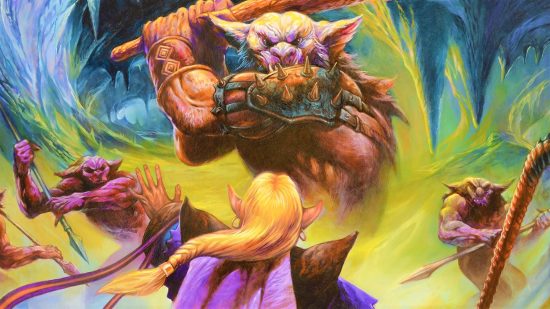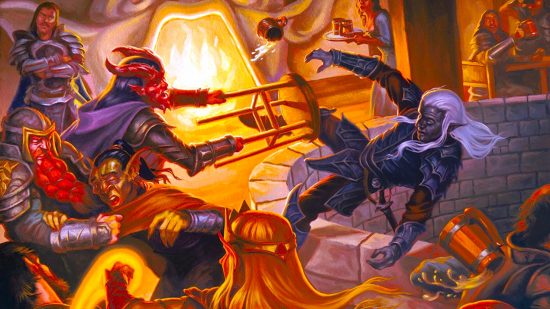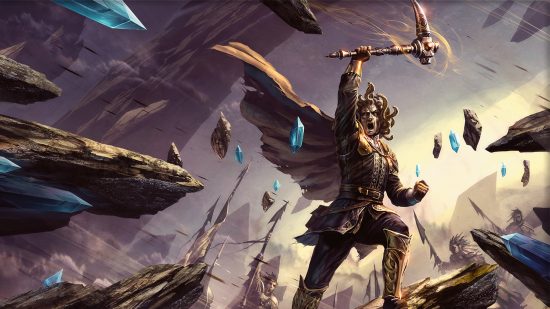More than a week after a leaked report on changes to the D&D OGL lit the tabletop RPG section of the internet on fire, Wizards of the Coast has responded with a statement, promising some changes from its “early drafts”, while ploughing on with plans for an updated version of the Open Gaming Licence. “We need to make sure we get it right, but it is coming,” the publisher says.
Notably, it’s scrapping the royalty structure, which would have required the most profitable third party D&D publishers hand over a portion of their revenue. “Our drafts included royalty language designed to apply to large corporations attempting to use OGL content. It was never our intent to impact the vast majority of the community,” the statement reads, adding that from fans’ reactions, it clearly “rolled a 1” here. Wizards also says that content released under the existing license will not be affected by the change, something many creators were worried about.
Wizards adds that it is also removing the “license back provision that some people were afraid was a means for us to steal work.” The statement remarks that this “never crossed our minds”. Instead, the company says it wanted to “protect us and our partners from creators who incorrectly allege that we steal their work simply because of coincidental similarities.”
So what’s remaining as it was originally planned in the new DnD OGL? It “will contain the provisions that allow us to protect and cultivate the inclusive environment we are trying to build and specify that it covers only content for TTRPGs,” allowing Wizards to take action against “discriminatory and hateful conduct” while also “clarifying what types of products the OGL covers”. Before Christmas, Wizards gave the example of D&D NFTs as something the new OGL is designed to prevent.
Wizards’ statement says that it won’t be releasing the new OGL today, implying that this was its original plan. It also suggests that it had always planned to seek feedback from the community before changing the OGL in any way. “the drafts you’ve seen” (presumably referring to leaked documents circulating online “were attempting to do just that”.
Wizards ends its statement by apologising, asking for the chance “to make this right”, and thanking fans for making their voices heard. “Any change this major could only have been done well if we were willing to take that feedback, no matter how it was provided–so we are.”

The D&D community has been in uproar about expected changes to the OGL, which allows tabletop RPG creators to sell work derived from the 5e rules, for at least a week now. Even before Christmas there was plenty of discontent, with rumours spreading that the OGL might change or even be scrapped altogether. Wizards of the Coast made efforts to assure fans that “very little is going to change from what you’re already used to”, but this didn’t put everyone’s fears to bed.
Those early rumblings are nothing compared to the uproar that shook the D&D community this week, however. On January 5, Gizmodo reported on a leaked draft of the OGL version 1.1, suggesting that the changes would be more impactful than previously suggested, including demanding creators report all work they make, allowing Wizards to use any content published under the new agreement, and potentially preventing future sales under the current OGL – the latter two points are addressed in Wizards’ new statement.
Some smaller RPG publishers using the OGL quickly made plans to jump ship, and cut all SRD content out of their work, and major third party 5e publisher Kobold Press announced the development of its own roleplaying system on Monday. Then on Thursday, Paizo announced its own open RPG license, designed so other creators can attach their systems to it.

